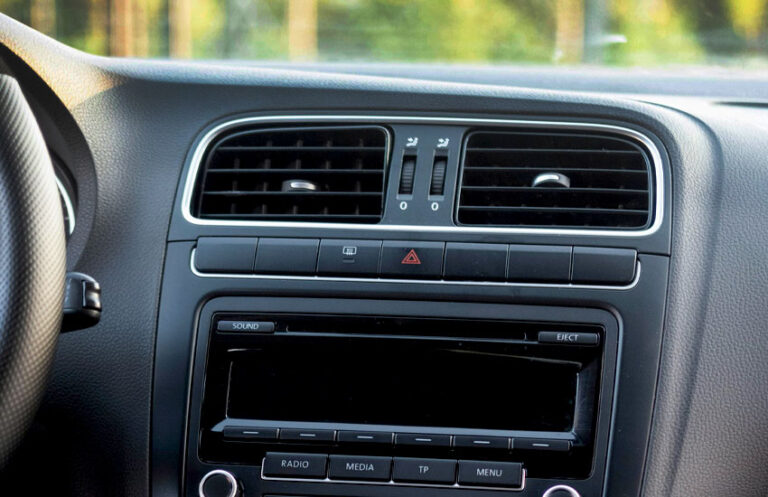As an Amazon Associate, I earn from qualifying purchases at no extra cost to you.
How to Fix a Squeaky Noise When the Tire Rotates? Expert Tips
We've all been there. You're driving down the road, minding your business, and then suddenly, you hear it: a high-pitched squeak coming from your tire. At first, it might seem harmless, but over time, that squeaky noise can be annoying and might even indicate a bigger issue. If you’re tired of hearing that squeaky sound every time your tire rotates, don’t worry – you’re not alone! In this article, we’ll walk you through how to fix that squeaky noise and get your car running smoothly again. Let's dive in!

Why Do Tires Make a Squeaky Noise?
Before jumping into fixing the squeaky noise, it's important to understand why it happens in the first place. Squeaky noises from tires can be caused by a number of different factors. It could be something as simple as dirt or debris caught in the wheel, or it could be a sign of worn-out brake pads or suspension issues. Knowing the root cause of the squeak will help us figure out the best way to fix it.
Common Causes of Squeaky Tires
1. Dirty or Wet Tires
One of the most common reasons for a squeaky noise is when your tires are dirty or wet. Road grime, dust, and even water can get stuck in the tread or the brake area, causing friction and that annoying squeak. This is a simple issue to fix, and it's something you can easily take care of with a good car wash.
2. Worn-Out Brake Pads
Another reason for squeaky noises could be your brake pads. If they're worn out, they can create friction and produce a high-pitched squeal every time you press on the brakes. This is a more serious issue and can lead to brake failure if not addressed quickly. If you think this might be the cause, it's important to get your brake pads checked or replaced as soon as possible.
3. Suspension Problems
The suspension system in your car helps keep the tires in contact with the road and ensures a smooth ride. If there are any issues with your suspension components, such as worn-out shock absorbers or struts, this could lead to squeaky tires. Suspension issues can be harder to identify, but they need to be fixed by a professional mechanic to avoid more serious problems.
4. Low-Quality or Incorrect Tires
Sometimes, the tires themselves could be the cause of the noise. If your tires are made from low-quality rubber or they’re not the right fit for your vehicle, they can create extra friction, leading to squeaks or other noises. It’s always a good idea to use high-quality tires that are designed specifically for your car model.
5. Underinflated Tires
Tires that are underinflated can also cause squeaky noises. When the air pressure in your tires is low, it increases friction between the tire and the road, which can create squeaking sounds. You can easily fix this by checking your tire pressure and inflating them to the recommended level.
How to Fix the Squeaky Tire Noise
Now that you know some of the common causes of squeaky tires, let’s look at how to fix them. We’ll go over step-by-step solutions for each issue so that you can get back on the road in no time.
Fixing Dirty or Wet Tires
If your tires are dirty, the fix is simple! Start by giving your car a good wash, paying extra attention to the tires and wheels. You can use a hose or a pressure washer to rinse off any dirt or debris. Then, use a wheel cleaner to get rid of any stuck grime in the wheel wells or on the tire tread. Make sure to dry off your tires after washing them so that any excess water doesn't contribute to further squeaking.
For wet conditions, it’s best to avoid driving in heavy rain or wet roads for long periods, as this can increase friction and lead to squeaks. However, once the roads dry up, the noise should stop on its own.
Fixing Worn-Out Brake Pads
If you suspect that your brake pads are causing the squeak, it’s time to get them checked out. Worn-out brake pads are dangerous and should be replaced immediately to prevent further damage to your braking system. Here's what you can do:
- Check the Brake Pads: If you’re comfortable doing so, you can check the thickness of your brake pads yourself. If they're thinner than 1/4 inch, it’s time for a replacement.
- Replace the Brake Pads: If you find that the pads are worn down, you'll need to replace them. It's best to get this done by a professional mechanic if you don't have experience with car repairs, as brake maintenance requires specific knowledge and tools.
- Lubricate the Brakes: Sometimes, squeaky brakes can be fixed by simply applying a special brake lubricant. This can reduce the friction between the brake pads and the rotor, which may help silence the squeak. Make sure to use a lubricant that's safe for brake components.
Fixing Suspension Issues
Suspension problems require a little more attention and expertise. If you suspect your suspension is causing the squeak, it’s important to have it inspected by a professional mechanic. Some suspension issues might be easy to spot, but others might require special equipment to diagnose. Here's what you can expect:
- Check for Leaks: Sometimes, suspension components like shock absorbers or struts can start leaking, which can lead to squeaky noises. If you notice any fluid leaking from these parts, it's time for a replacement.
- Inspect Bushings and Joints: The suspension system contains various bushings and joints that can wear out over time. If these parts are damaged or worn, they can cause squeaks. A mechanic will be able to check and replace these parts if necessary.
- Replace Shocks or Struts: If your shocks or struts are the problem, they will need to be replaced. This is not a DIY fix unless you have experience with suspension repairs, so it's best to leave this to the pros.
Fixing Low-Quality or Incorrect Tires
If you think your tires are the problem, you'll want to replace them with higher-quality tires that are designed for your vehicle. Tires that are not the right size or have poor rubber quality can create extra friction and cause squeaking sounds. To fix this, follow these steps:
- Check Your Tire Specifications: Refer to your vehicle's manual or look at the sidewall of your current tires to ensure you’re using the right size and type.
- Replace the Tires: If the tires are low-quality or incorrectly sized, it’s time for a replacement. Go for high-quality tires from a reputable brand, as they will provide better performance and help reduce noise.
Fixing Underinflated Tires
If your tires are underinflated, it’s easy to fix! All you need is a tire pressure gauge and an air compressor. Here's how:
- Check the Tire Pressure: Use the tire pressure gauge to check the air pressure in each tire. Make sure to do this when the tires are cold, as driving can cause the pressure to rise.
- Inflate the Tires: If the pressure is low, inflate your tires to the recommended level, which can be found in your vehicle’s manual or on a sticker inside the driver’s door frame.
- Recheck the Pressure: After inflating, double-check the tire pressure to make sure it's correct.
Regularly checking and maintaining the right tire pressure is essential for your car's performance and safety, so don't forget this step!
Final Thoughts
If you’re tired of hearing that annoying squeak every time your tires rotate, the solutions we covered should help. Whether it’s dirty tires, worn-out brake pads, suspension issues, or underinflated tires, there's a fix for every problem. Just make sure to stay on top of your vehicle’s maintenance, and you’ll be driving smoothly again in no time!
Frequently Asked Questions
Is it safe to drive with squeaky tires?
Driving with squeaky tires can sometimes indicate a more serious issue, like worn-out brake pads or suspension problems. It’s a good idea to have your car checked out to ensure your safety.
Can dirty tires cause squeaking?
Yes, dirty tires can cause squeaky noises due to the debris caught in the tread or brake area. Cleaning your tires can help fix the issue.
Do I need to replace my tires if they are squeaking?
Not necessarily. Squeaky tires can often be fixed by addressing issues like low tire pressure, dirty tires, or brake problems. However, if the tires are worn out, replacing them may be necessary.
Is it normal for tires to squeak after rain?
It's not unusual for tires to squeak after rain due to moisture and road debris. This noise should stop once the roads dry up and the tires are no longer wet.
Can worn-out brake pads cause tire squeaks?
Yes, worn-out brake pads can cause a high-pitched squeak when they rub against the brake rotors. If this is the case, it's important to replace the brake pads as soon as possible.
Is it necessary to lubricate the brakes to fix squeaking?
Lubricating the brakes can sometimes reduce squeaks, but it's not a long-term fix. If the squeak persists, you may need to replace the brake pads or other components.
Can suspension problems cause tire squeaks?
Yes, issues with the suspension system, like worn-out shocks or struts, can cause squeaky noises when the tires rotate. A professional mechanic should inspect and repair any suspension issues.
Do I need to replace my brake pads immediately if they're causing squeaking?
If your brake pads are causing squeaks and are worn down, it's important to replace them as soon as possible. Worn-out brake pads can affect your car's braking ability, which could be dangerous.





